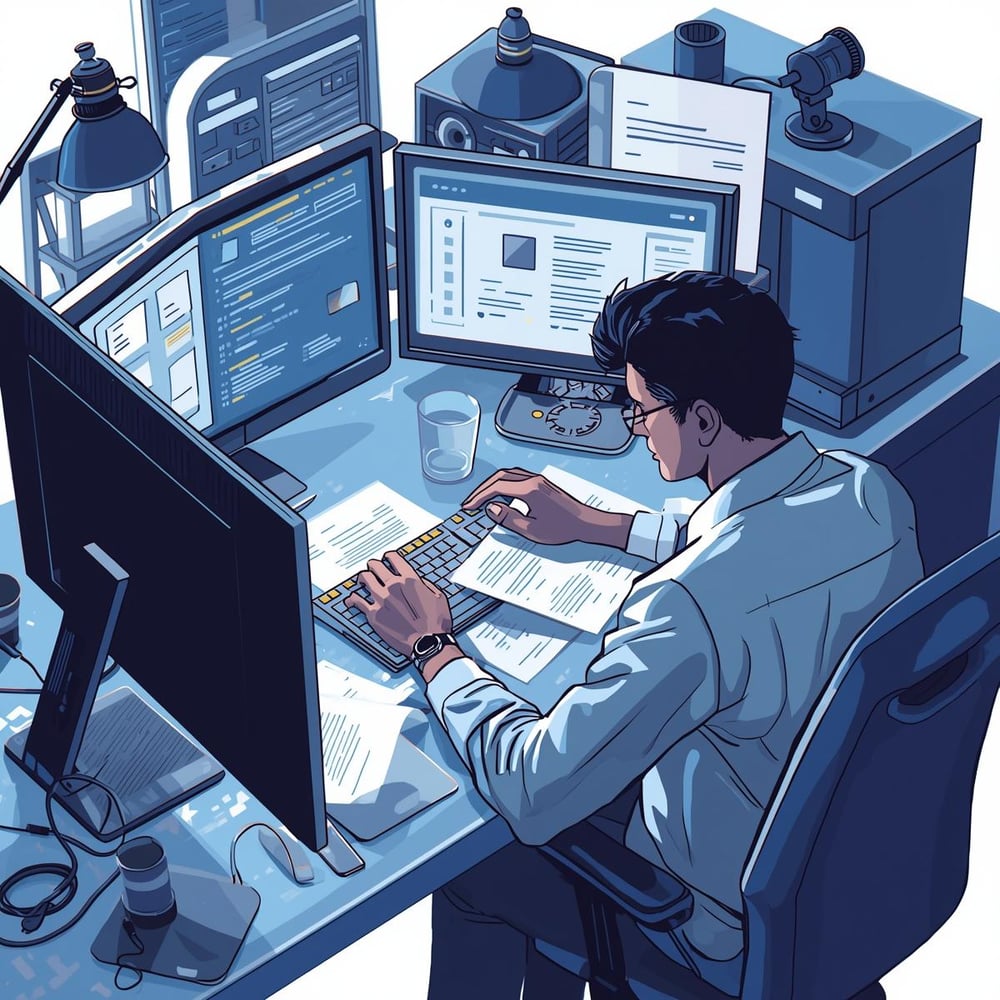Many creators, designers, and digital entrepreneurs start by downloading free resources: images, fonts, templates, or icons.
It's understandable: we all want to save time and money.
But what often seems like a head start can end up costing us dearly in terms of legality, quality, or reputation.
At [Done & Joy ⧉], we work specifically to offer safe and ethical alternatives. That's why today I'm sharing with you the most common mistakes I see when using free digital resources... and how to easily avoid them.
Let's look at those errors ❌ and their solutions ✔️
⚠️🛑 1. Not reading the usage licenses 🚨
Seriously, it is the most serious mistake. Yes, it's boring to read the license and "waste" time doing so. But if you're going to use the obtained resource to create something that you're going to display publicly and not for your own personal use, do you know if you can do so? Do you know if you can make commercial use of it? Do you know if you can use it in a specific place? How many times? In what situations?
Many sites offer “free resources”, but their licenses hide important restrictions:
- They only allow personal, non-commercial use.
- They require visible attribution (e.g., “image by X author on X site”).
- Or they prohibit modification or redistribution.
💡 ✔️How to avoid it:
Before downloading, read the license. It depends on your intended use of the resource you've obtained, but look especially for the terms "free for commercial use" and check if it requires attribution.
If the license isn't clear, don't use it.
At [Done & Joy ⧉], each resource includes a simple and transparent license so you can work with complete peace of mind.
🎨 2. Mixing styles without visual coherence
When you download assets from different sources, the result can be a mix of inconsistent styles, resolutions, or tones.
This conveys a lack of professionalism and diminishes the project's visual impact.
💡 ✔️ How to avoid it:
Create a coherent set of assets that share a common palette, style, or purpose.
For example, our collections are designed to combine effortlessly, so your designs look balanced and consistent.

🧩 3. Relying on low-quality resources
Many free resources are compressed, pixelated, or poorly cropped. Sometimes they even contain technical errors that aren't noticeable until you export the final project.
💡 ✔️ How to avoid this:
- Opt for optimized, tested, and professionally edited resources.
- Don't just look at price: look at consistency, resolution, and visual clarity.
🔒 4. Using images without verifying their origin
One of the biggest risks is the misuse of protected images circulating as "free". This can lead to copyright claims or even the removal of your content from platforms.
💡✔️ How to avoid it:
Always use resources with clear traceability. In our store, we guarantee that our images, even those generated by AI, meet criteria of responsible authorship and ethical use.
In fact, many of the AI-generated images we use in our products come from [ NightCafe ⧉], where the license clearly states that the creator of the image retains authorship and ownership for both personal and commercial use. The license is clear. It's also one of the best AI-generated images I've seen.
➡️ This article contains affiliate links, which means I may receive a commission if you purchase through them, at no additional cost to you, and you may even receive free gifts and discounts on occasion.



Comments ()